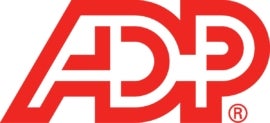-
Gusto: Best for automating payroll
-
ADP Payroll: Best for large businesses
-
Papaya Global: Best for international payroll
-
Paycor: Best for employee self-service
-
OnPay: Best for small businesses

QuickBooks, a product now managed by Intuit, is one of the most popular accounting solutions for small businesses. Its most notable features include income and expense tracking, inventory management, and payroll management for companies of varying sizes and industries.
SEE: Payroll processing checklist (TechRepublic Premium)
Since its initial release, QuickBooks has undergone several improvements and upgrades, and it is now available in desktop and cloud-based versions. QuickBooks is well-known for its accounting software, but it’s also a top choice for companies that need support for payroll management.
In this comparison guide, we’ll take a closer look at what QuickBooks Payroll offers for payroll needs and how other payroll products and services compare.
Jump to:
- Best QuickBooks Payroll alternatives
- What are the pros and cons of QuickBooks?
- Why do companies outgrow QuickBooks?
- What is easier to use than QuickBooks?
- How do you choose a QuickBooks replacement?
Best QuickBooks Payroll alternatives
| Mobile app | 24/7 customer service | Time Tracking | Tax reporting | |
|---|---|---|---|---|
| QuickBooks | Yes | Yes | Add-on | No |
| Gusto | Yes | No | Yes | Yes |
| ADP | Yes | No | Yes | Yes |
| Papaya | Yes | Yes | Yes | Limited |
| Paycor | Yes | No | Yes | Yes |
| OnPay | No | No | No | Yes |
Gusto: Best for automating payroll

Gusto, previously known as ZenPayRoll, is one of the leading HR platforms that helps simplify payroll management. It’s an all-in-one online HR service that is ideal for small businesses. Users can automate payroll processes, including filing taxes, calculating paychecks and issuing forms to contractors.
Using Gusto is easy for employers and employees. In addition, full-time employees get access to high-yield savings accounts through Gusto.
Key features
- New hire reporting
- Contractor payments
- Flexible payroll schedules
Pros
- Excellent employee onboarding features
- Integrations with top accounting software
- Scalable
- Automation of several HR functions to maximize efficiency
Cons
- Some key features missing in the Simple plan
- Per-person cost can get expensive
- Doesn’t facilitate payments outside the U.S.
Pricing
- Simple: $40 per month plus $6 per person paid.
- Plus: $80 per month plus $12 per person paid.
- Premium: Custom.
ADP Payroll: Best for large businesses

ADP is one of the largest payroll service providers, so it is no surprise that it’s made it onto this list. The payroll features offered by ADP include payroll tax, integration with accounting software, payroll processing and new reporting.
It’s not the easiest payroll software to use, with many users claiming that the application has a steep learning curve. However, it’s one of the most comprehensive payroll solutions on the market. Depending on your package, you can access everything from direct deposit to labor law compliance.
Key features
- Legal services from ADP parent company, LegalShield
- HR compliance checkups
- Dedicated support team of HR professionals
Pros
- Works for businesses of all sizes, from startups to large enterprises
- Strong customer service
- Extensive HR and payroll features
Cons
- Custom pricing only
- Integration costs extra
Pricing
- Essential: Custom
- Enhanced: Custom
- Complete: Custom
- HR Pro: Custom
Papaya Global: Best for international payroll

Papaya Global offers a suite of HR solutions, including payroll, workforce management and hiring. It is the leading international payroll solution for cross-border payroll payment, compliance and tax filing.
Along with payroll and HR services, Papaya Global can be used for securing work permits and other immigration services. In addition, Papaya Global has a network of in-country partners to help with payroll and other HR services.
Key features
- Global payroll payments for 160+ countries
- Dedicated account manager
- Payroll employee of record services
Pros
- Global payments
- Country-specific onboarding workflows
- Excellent support for payroll, legal and compliance
Cons
- Expensive for a business with a large number of employees or international payroll
- The self-service portal is not the best
Pricing
- Pricing starts at $20 per month per employee, but it can go up dramatically for international payroll services.
Paycor: Best for employee self-service

Paycor is an easy-to-use online payroll application. It is loaded with features, including an employee self-service portal that can be used to update information, access pay stubs, and review benefits and compensation data. It’s an excellent tool to empower employees.
Paycor also helps streamline tax preparation so businesses can meet deadlines. In addition, the higher-priced plan of Paycor offers compliance support, benefits and other HR tools.
Key features
- Comprehensive employee self-service portal
- On-demand pay
Pros
- Unlimited payroll runs
- Intuitive user interface
- Compliance expertise
Cons
- Expensive for payroll service, with plenty of added fees
- Time tracking only available as an add-on
- Additional setup fees
Pricing
- Basic: $99 per month plus $5 per employee per month.
- Essential: $149 per month plus $9 per employee per month.
- Complete: $199 per month plus $7 per employee per month.
- HCM: $199 per month plus $12 per employee per month.
OnPay: Best for small businesses

OnPay works in all U.S. states, handling over $2 billion in payroll annually. With one plan covering all features, OnPay users receive blanket access to the platform’s features. However, scalability is an issue, making it more suited to small businesses.
There are no hidden fees, add-on costs or charges to upgrade, but OnPay does not have a mobile app, and integrations are limited.
Key features
- Payroll for multiple schedules
- Federal and state tax filings
- Payroll account migration
Pros
- Full customer support over the phone or online
- Transparent and competitive pricing
- One plan that includes all features
Cons
- Limited integrations compared to competitors
- Lack of scalability, making it less suited for larger businesses
- No time tracking
- No mobile app
Pricing
- Plans start at $40 per month plus $6 per employee per month.
What are the pros and cons of QuickBooks?
The advantages of using QuickBooks Payroll
- Extensive support network: As one of the most popular accounting software options, there are many resources available online for users to learn how to use QuickBooks or find solutions to problems.
- Affordable: Starting at $37.50 per month plus $5 per employee, QuickBooks Payroll is affordable, which has been one the pillars of its success. There are also a variety of pricing plans to serve different needs.
- Ease of use: The intuitive interface of QuickBooks Payroll makes it easier for users to set up and use the payroll features.
The disadvantages of using QuickBooks Payroll
- Lack of integration features: If you need to connect QuickBooks to other applications, you may be disappointed, as there are few integration opportunities.
- Open to manipulation: Compared to other more robust solutions, the data in QuickBooks is easy to manipulate.
- Limited users and file sizes: QuickBooks has limitations on how many users and files can be handled simultaneously.
Why do companies outgrow QuickBooks?
QuickBooks is ideal for small and order-centric businesses that need a basic accounting or payroll solution. However, companies with a growing workforce, recurring revenue, an assortment of billing models or other complex workflows may eventually outgrow QuickBooks.
In addition, QuickBooks lacks integration features, which are becoming increasingly crucial for organizations that continue to adopt more digital technology. There is also less automation available, which can be problematic when the number of entries or transactions grows.
Organizations are also concerned about audit trail loopholes in QuickBooks, as data manipulation is easier, making financial records in QuickBooks vulnerable to exploitation or scrutiny.
What is easier to use than QuickBooks?
There are several HR and payroll solutions that are easier to use than QuickBooks. However, in some cases, ease of use is a trade-off with functionality.
For example, the OnPay solution is one of the easiest-to-use software options on the payroll market, but it is missing some key features, like a mobile app, time tracking and general scalability. The software that is most similar in its user interface to QuickBooks Payroll is Gusto.
How do you choose a QuickBooks replacement?
When switching from QuickBooks to another payroll solution, you need to consider several factors, including your budget and integrations with your technology stack. A good starting point is to identify why you need to upgrade from QuickBooks. For example, if you are switching because your business has more employees, you’ll need to look at alternative solutions designed for larger companies.
Similarly, if QuickBooks no longer works for you because you need it to integrate with other applications, you must ensure the alternative will offer the right integration options.
Using this page as a guide, you can narrow your search. However, to make the final decision, you will need to get the product and use the software to determine if it is a good fit for your business’s payroll processing needs.
Read next: Top payroll processing services for small businesses (TechRepublic)








